Investigative journalist and forensic expert
Thousands of pages of leaked Facebook condidential pages now on line
Download the documents links and read how they leakedOn Wednesday 6 November 2019, I and media partners published full copies of 6,971 pages of Facebook confidential and legal documents, leaked in February. Some are documents previously used by Britain's House of Commons DCMS Committee for their critical report on Facebook. Media partners Computer Weekly @computerweekly, NBC News @nbcnews, and tech journalists Bill Goodwin @williamrt, Olivia Solon @oliviasolon and Cyrus Farivar @CFarivar have had full exclusive access to all the documents for investigative reporting, for a decisive series of reports published from March 2019 to date. Over 1,200 of the pages now released have been marked "HIGHLY CONFIDENTIAL" by Facebook. These documents evidence multiple breaches of the FTC settlement agreed by Facebook, leading to the record breaking $5 billion fine agreed in July. Facebook Leaks has revealed multiple anti-competitive projects to shut down thousands of app developers unless they paid Facebook through an in-house advertising subsidiary (NEKO), methods used by Facebook to deceives users about privacy (Onavo), and to monetise their data, including by secretly allowing favoured companies to harvest and exploit data, including for political targeting. The practices we have jointly exposed allowed and enabled abuses like the election interference scandals driven by Cambridge Analytica. Chosen companies could copy data from millions of online Facebook friends. And much more ... We have launched the full leaked documents into the public domain so that regulators and litigants can now have the fullest possible information. Last week U.S. House Judiciary Subcommittee on Antitrust, Commercial and Administrative Law asked for all the documents. Facebook ignored the request. I provided them direct to Congress. Over the last six months, Facebook has failed to respond to numerous Press requests for comment on the documents published in full today. These rows began when many or all of these documents were first seized in Britain by the DCMS committee in 2018. Facebook's response to the leaks was published on 5 December 2018. The response was corporate spin and PR, always to be relied on to be mendacious and misreading. This response was true to form. A key part of Facebook's spin was to suggest that the documents were only about the company that has sued them Six4Three LLC, and its application called "Pikini" - "as we’ve said many times". That does not make their statement true. In fact, none of the original documents refer to Six4Three or Pikini. They are all about Facebook's corporate misconduct, directed at misleading users, closing down competitors and gaining market dominance, swallowing up or killing rivals and minor players, according to their whims. In their published statement, Facebook complain that reports of the FaceBook Leaks documents used "select quotes" and were "selectively leaked to publish some, but not all, of the internal discussions at Facebook". "The full story was omitted." Fair point. We are happy to put out the full story and give everyone everything. Facebook, Mr Zuckerberg, you are welcome now to thank us for public service.
Facebook has targeted politicians around the world – including the former UK chancellor, George Osborne – promising investments and incentives while seeking to pressure them into lobbying on Facebook’s behalf against data privacy legislation, an explosive new leak of internal Facebook documents has revealed. Read the rest of this story at The Observer and more coverage at Computer Weekly Briton ran pro-Kremlin disinformation campaign that helped Trump deny Russian links
A British IT manager and former hacker launched and ran an international disinformation campaign that has provided US President Donald Trump with fake evidence and false arguments to deny that Russia interfered to help him win the election. The campaign is being run from the UK by 39-year-old programmer Tim Leonard, who lives in Darlington, using the false name “Adam Carter”. Starting after the 2016 presidential election, Leonard worked with a group of mainly American right-wing activists to spread claims on social media that Democratic “insiders” and non-Russian agents were responsible for hacking the Democratic Party. The hacking attacks had damaged Trump rival Hillary Clinton’s campaign. The claims led to Trump asking then CIA director Mike Pompeo to investigate allegations circulated from Britain that the Russian government was not responsible for the cyber attacks, and that they could be proved to be an “inside job”, in the form of leaks by a party employee. This was the opposite of the CIA’s official intelligence findings. British fraudster jailed
Raheem Brennerman, a business fraudster who has cost multiple British and American media organisations £2 million as the result of multiple vexatious legal actions, has been convicted in the US for multi-million dollar frauds, and criminal contempt. In 2013, as part of ICIJ's Offshoreleaks investigations, the Sunday Times and the Guardian exposed Brennerman's planned used of offshore companies in the British Virgin Islands and Seychelles to channel profits from a £100 million planned development next door to London's Buckingham Palace. The venture failed in 2008, contributing to the UK's financial crash. Brennerman then set up new scam ventures in the UK and US, using offshore secrecy and serial lawsuits while stealing millions more. Brennerman was arrested in Las Vegas in April 2007 and convicted in New York's Federal District Court on 6 December 2017, as reported by the Sunday Times (full article also available as PDF). (Photo credit: Wayne Wallace) Planned Espionage Act would jail whistleblowers as spiesProposals in the UK for a swingeing new Espionage Act that could jail journalists as spies have been developed in haste by legal advisors, The Register has learned. The proposed law update is an attempt to ban reporting of future big data leaks. The British government has received recommendations for a "future-proofed" new Espionage Act that would put leaking and whistleblowing in the same category as spying for foreign powers. Read Full ArticleLondon Internet Exchange prepares for tapping and gagging ordersLondon Internet Exchange (LINX) – Europe's major internet traffic hub – faces a growing backlash over changes to its rules that would gag its directors applying secret government orders to monitor networks, under Britain's Investigatory Powers Act. LINX members – hundreds of internet companies – have been given less than two weeks' warning of an effect of a proposed new LINX constitution (called "memorandum and articles") that would allow secret surveillance orders or requests to be implemented without members' knowledge. Read Full ArticleLondon Internet Exchange members say no to gagging proposalMembers of LINX, the London Internet Exchange – the UK's largest net peering point – have rejected proposals that would reshape the company’s constitution and could block members from being consulted about government tapping instructions. The vote, on Tuesday, followed a Reg report revealing that members had been given less than two weeks notice of a proposed change which would allow LINX’s chairman to “override” directors’ wishes and prevent members learning about controversial actions, including, according to LINX, “secret orders from the government” Read Full ArticleSmall investors lose millions in ‘ethical’ forestFAMILIES and pensioners who were encouraged to invest in “ethical” tree plantations in the Amazon rainforest have lost millions of pounds in a scheme being examined by the Serious Fraud Office (SFO). Two entrepreneurs, Omari Bowers, 37, and Andrew Skeene, 36, claimed that investors could expect returns of about 10% a year from growing teak in the rainforests. They said teak had proved a better investment than gold, property and shares. The business partners, both from London, impressed their clients with their commitment to regenerating deforested land in Brazil but investors are now pursuing millions of pounds that have been lost in the Global Forestry Investment scheme. Read Full ArticleHow emails sent to and from Parliament are monitoredLast week, Computer Weekly reported that Parliamentary emails and documents stored in the cloud were open to scanning and surveillance by US and British intelligence agencies. GCHQ, the Cabinet Office, and the Parliamentary Digital Service have each claimed that the report was "wrong" or "inaccurate", but have not yet substantiated any specific alleged error or inaccuracy. Members of the House of Commons and House of Lords have said they intend to raise questions when Parliament starts sitting this week. Here, we set out the documentary evidence of email monitoring, including from highly classified GCHQ and NSA documents released by Edward Snowden. Read Full ArticleMPs’ private emails are routinely accessed by GCHQGCHQ and the US National Security Agency (NSA) have access to intercepted emails sent and received by all members of the UK Parliament and peers, including with their constituents, a Computer Weekly investigation has established. The intelligence agency in Cheltenham has been able to harvest traffic details of all parliamentary emails, including details of the sender, recipient and subject matter, for at least three years. As a result, details of private email correspondence between MPs and constituents are being collected by GCHQ as a matter of routine. GCHQ documents classified above top secret, released by NSA whistleblower Edward Snowden, also reveal that the spy agency has the capability to scan the content of parliamentary emails for “keywords” through an established cyber defence network that is connected to commercial software used to filter spam emails from MPs’ inboxes. Read Full ArticleBritain to pay billions for monster internet surveillance networkNew questions raised about Britain’s snoopers’ charter after Denmark abandons its own UK-style surveillance programme for a second time Britain’s biggest web companies will be forced to build a national network of massive internet surveillance centres, likely to cost billions of pounds, if MPs approve proposals the Home Office is determined to rush through Parliament after Easter. Read Full ArticleNew UK law will criminalise failure to hack on demandMPs have been given only two weeks to read 1,200 pages of documents which disclose new powers to require technology companies to install secret surveillance capabilities in software, computer equipment or networks. Computer businesses or IT staff who fail to destroy security on their products or services on demand, or who decline a Home Office order to hack their customers in Britain or overseas by installing or operating government malware, could face bankruptcy or long jail sentences if a new law before parliament goes ahead. Read Full ArticleInvestigatory Powers BillDuncan provided written evidence to the Joint Committee on the controversial new Investigatory Powers bill in December 2015 (inital submission and supplementary follow-up). The Committee is expected to report in February 2016. We have also set up print-on-demand A5-book versions of the Draft Bill text and Home Office papers supporting the bill, as well as the three major 2015 surveillance reports that led up to it. Advocates as well as opponents of the new Home Office plans may find these bound volumes more convenient than the online PDF documents. (No revenue is generated to us from these books, they are set at the lowest price that Lulu will allow.) Big Brother is born. UK Govt admits after 15 years of secrecy.
Britain's national Lawful Interception (LI) tapping centre codenamed PRESTON (left) has replaced the secret TINKERBELL Post Office tapping centre I exposed in 1980The "Big Brother" comprehensive national database system feared by many MPs has been built behind their backs over the last decade, and even has a name for its most intrusive component: a central London national phone and internet tapping centre called PRESTON. PRESTON, which collects about four million intercepted phone calls a year, has also recently been used to plant malware on iPhones, according to disclosures by former NSA contractor Edward Snowden. The phones were then targetted for MI5 "implants" (malware), authorised by a ministerial warrant. Read Full Article(Image credit: Thames House, CC-BY-SA by Cnbrb at the English language Wikipedia) Invasion of the bungalows
Cold war historyDuring the 1950s, dozens of bungalows of almost identical design were secretly built across the length and breadth of Britain. Inside every one was a discrete guardroom, and a rear shaft leading down to protected radiation and blast proofed underground bunkers. Many of them became emergency government regional wartime control centers during the Cold War. All of the bunker network, called ROTOR, has been declassified and the bunkers decommissioned and sold off. This report from London's Time Out magazine, identified the network for the first time.
|
 |
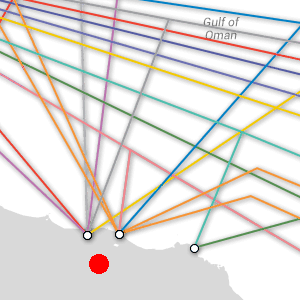 |
NSA: Inside the FIVE-EYED VAMPIRE SQUID of the INTERNETOne year after The Guardian opened up the trove of top secret American and British documents leaked by former National Security Agency (NSA) sysadmin Edward J Snowden, the world of data security and personal information safety has been turned on its head. Everything about the safety of the internet as a common communication medium has been shown to be broken... Read More... |
GCHQ's Middle East cable tap centre revealedAbove-top-secret details of Britain’s covert surveillance programme - including the location of a clandestine British base tapping undersea cables in the Middle East - have so far remained secret, despite being leaked by fugitive NSA sysadmin Edward Snowden. Government pressure has meant that some media organisations, despite being in possession of these facts, have declined to reveal them. Read More... |
Britain's 'secret listening post in the heart of Berlin'
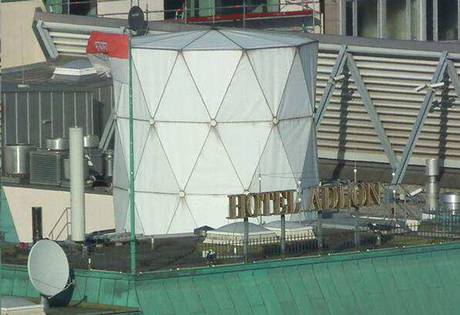 Claims that GCHQ has maintained spying operations even after US pulled out. The front page report for the Independent resulted in the British ambassador being summoned to the German foreign ministry. Read main story here
Claims that GCHQ has maintained spying operations even after US pulled out. The front page report for the Independent resulted in the British ambassador being summoned to the German foreign ministry. Read main story here
Also see:
-
Exclusive: RAF Croughton base 'sent secrets from Merkel’s phone straight to the CIA'
-
Germany calls in Britain's ambassador to demand explanation over 'secret Berlin listening post'
The Eavesdroppers: First article revealing GCHQ
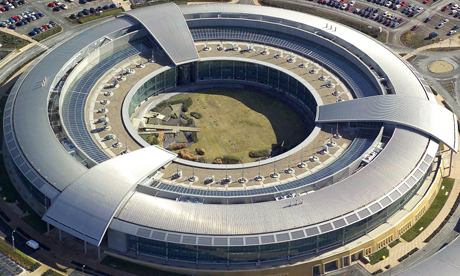 In 1976, Duncan Campbell, along with Mark Hosenball, published THE EAVESDROPPERS, the first ever report on GCHQ.
In 1976, Duncan Campbell, along with Mark Hosenball, published THE EAVESDROPPERS, the first ever report on GCHQ.
21 May 1976 | Click here to read
Offshore libel case struck out
The High Court has struck out claims for libel by offshore property developer Raheem Brennerman against Duncan Campbell and Times Newspapers Ltd, publishers of the Sunday Times. Brennerman failed to pay a security of costs order for £225,000, after complaining about a report on the use of British charities names by offshore trusts. The High Court ordered Brennerman to pay the full costs of both his actions, likely to exceed £400,000.
University focus on disinformation- how democracy is being undermined
Duncan will be discussing and revealing recent major disinformation operations with a panel of researchers and academics in a special "Sussex Salon" presentation at the Brighton Dome, on Tuesday 19 November 2019. Organised by Sussex University's School of Law, Politics and Sociology, the panel will discuss research on how to expose and neutralise trolls and bot accounts that amplify fake news across the internet. Duncan is a Senior Visiting Fellow at Sussex's School of Law, Politics and Sociology.
Edinburgh, 21 JuneDuncan is giving the 2016 CRISP Annual Lecture on "Big Data and Broken Law: Suspicionless Surveillance in a World of Ubiquitous Data" at Edinburgh University on 21 June 2016. CRISP is the Centre for Research into Information, Surveillance and Privacy, an inter-university collaboration. CRISP say that places (free, but reservation only) are filling fast. Uni Masterclass in Mass SurveillanceDuncan and former senior NSA director and whistleblower Bill Binney ran a masterclass in Mass Surveillance for a large academic audience at the University of Sussex in March 2016. Media lecturer Dr Alban Webb said that the class focussed "many discussions in the Sussex academic community". The Lab team and Ioann Stacewicz have published a full video of the session. Duncan at CIJ Logan 2016Duncan spoke on a panel at the Logan CIJ 2016 Symposium, along with NSA whistleblowers Bill Binney and Tom Drake, plus Annegret Falter (from Whistleblower-Network) and Holger Stark (of Der Spiegel). Duncan talks Snoopers Charter with NewsPeeksWhile Duncan was in Berlin for the Logan CIJ Symposium, he sat down for an interview with youth news organisation NewsPeeks, to talk about the impending changes to UK surveillance law.
Duncan interviewed on Al JazeeraDuncan participated in a piece for Al Jazeera's Listening Post strand, about the potential impact of the Investigatory Powers Bill on journalism in the UK. Books back in printWar Plan UK and The Unsinkable Aircraft Carrier are now available to buy in print again. Deepsec Conference 2015In November 2015, Duncan gave the keynote speech at the Deepsec conference in Vienna. Duncan's presentation is now available to watch online, as is the one given by American writer James Bamford (author of The Puzzle Palace, the seminal 1982 book about the US National Security Agency). Embassy Eavesdropping
Duncan's report in the Independent about the British electronic embassy spying operation in the heart of Berlin, called TRYST, aroused German government anger soon after Chancellor Merkel learned that he cellphone had been targeted by NSA. Read more and more Offshore Leaks
The International Consortium of Investigative Journalists's "Offshore Leaks" investigation lifted the veil on the secret world of tax havens. Read More The Capenhurst Tower
Read how Richard Lamont and Duncan Campbell exposed the true purpose of the Capenhurst Tower. Read more
MastodonDuncan's official Mastodon account is @duncaned@tech.lgbt
Twitter feed
CreditsThe website is populated and administered by Matt Fowler. Find contact details here |
|
Biography
Secret Society
The ABC Case
Broadcasting
Uncovering Global Surveillance
Computer Forensics
|
|


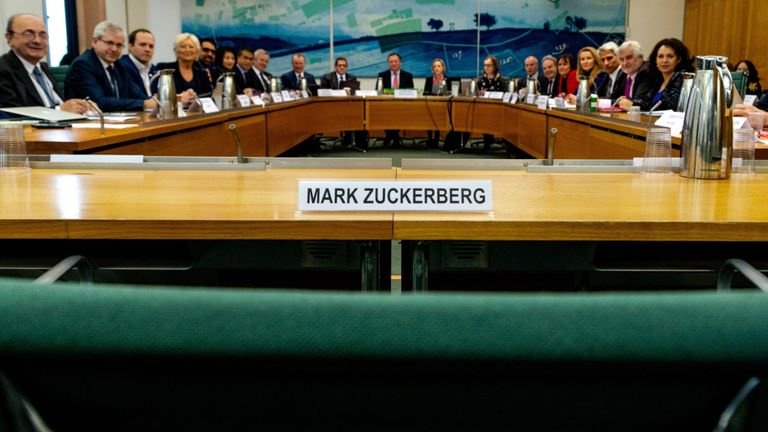




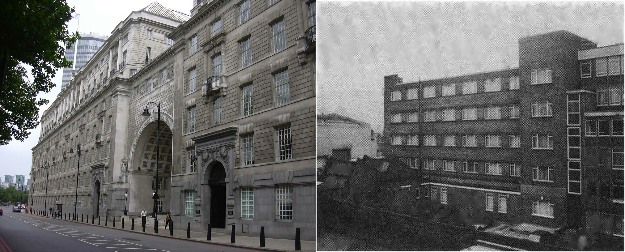
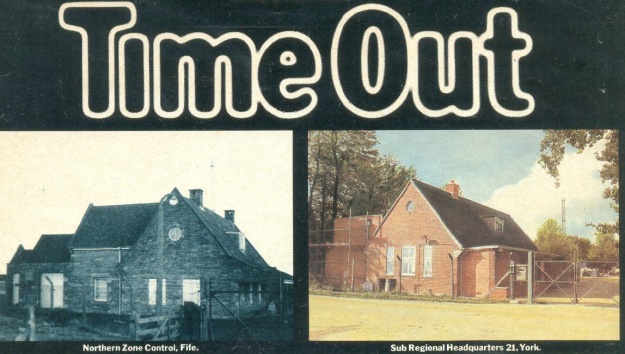



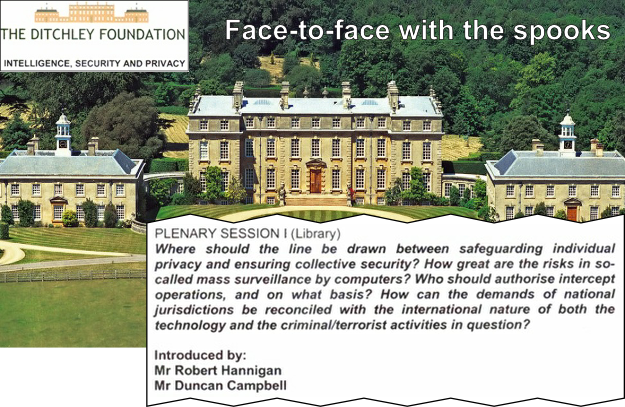
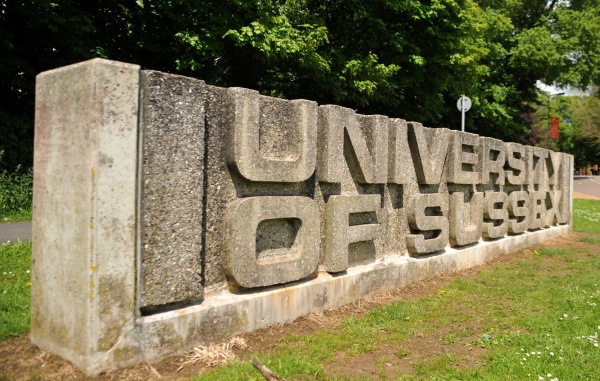




 Find out about Duncan's 40 years as an investigative journalist
Find out about Duncan's 40 years as an investigative journalist Watch the legendary, once-banned 1987 BBC series
Watch the legendary, once-banned 1987 BBC series  In 1977, Duncan was charged under the Official Secrets Act.
In 1977, Duncan was charged under the Official Secrets Act. Watch the investigative reports created for Channel 4 and the BBC.
Watch the investigative reports created for Channel 4 and the BBC.  Read stories on Echelon, phone-tapping, surveillance and more
Read stories on Echelon, phone-tapping, surveillance and more Duncan has been a leading expert witness in computer forensics for nearly two decades.
Duncan has been a leading expert witness in computer forensics for nearly two decades. 
